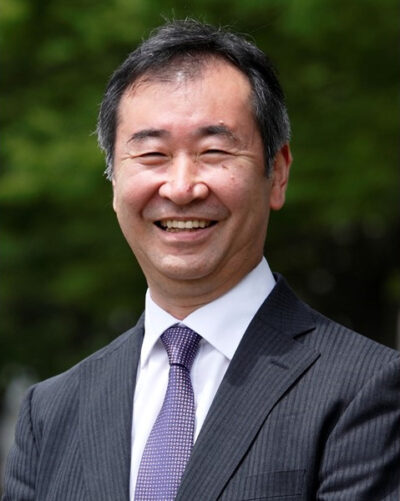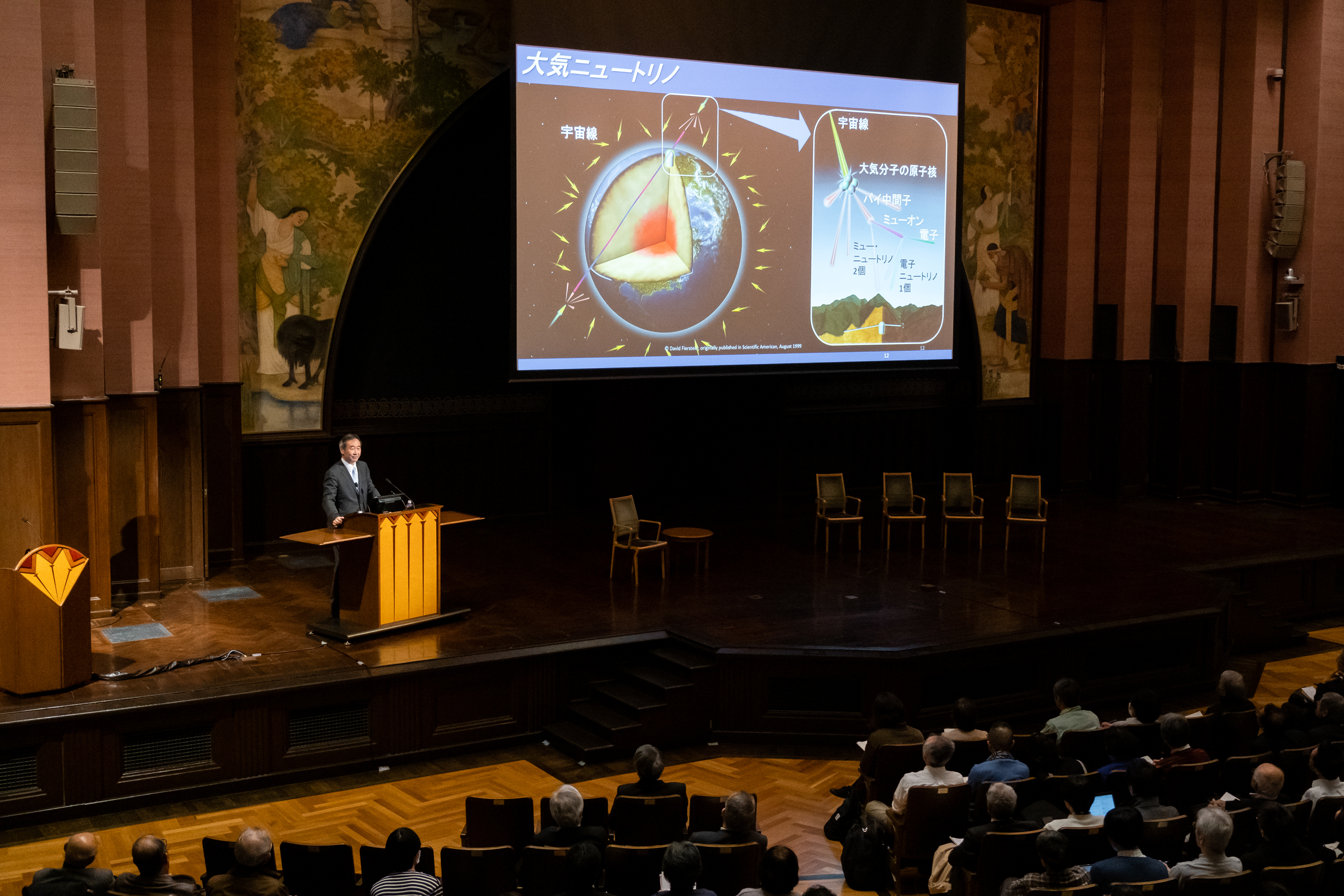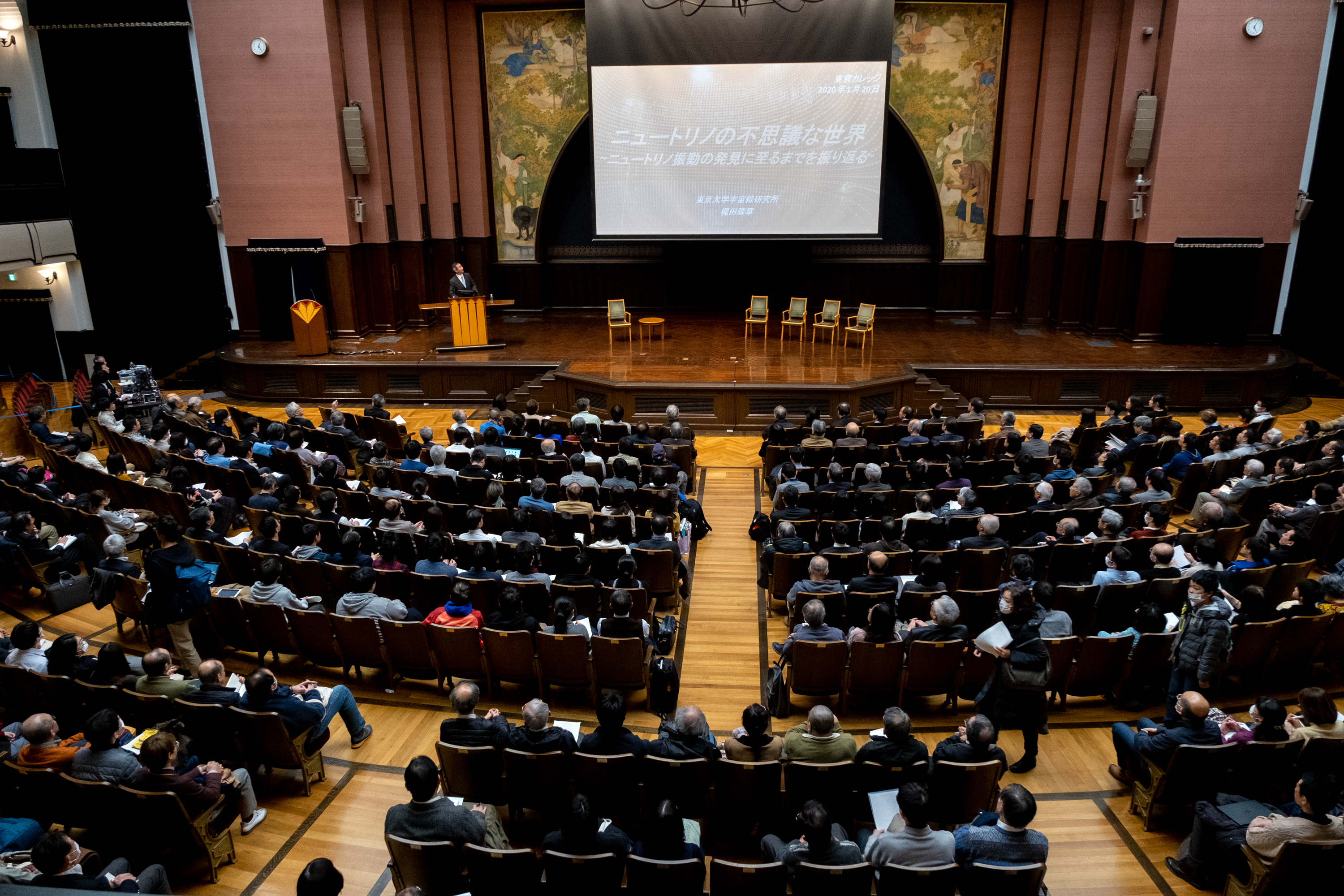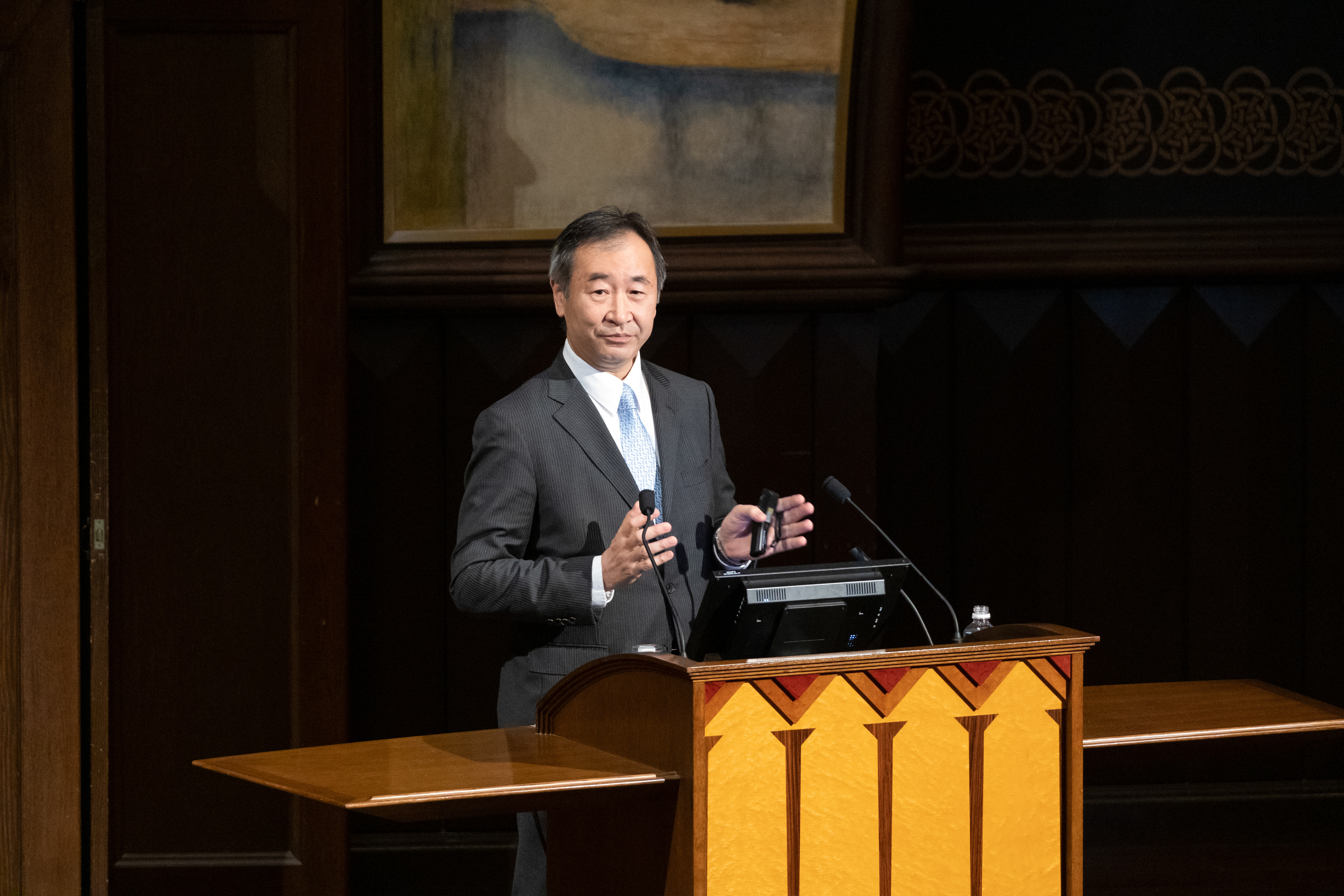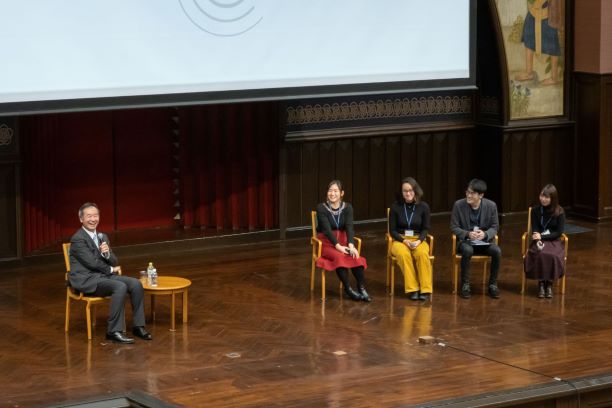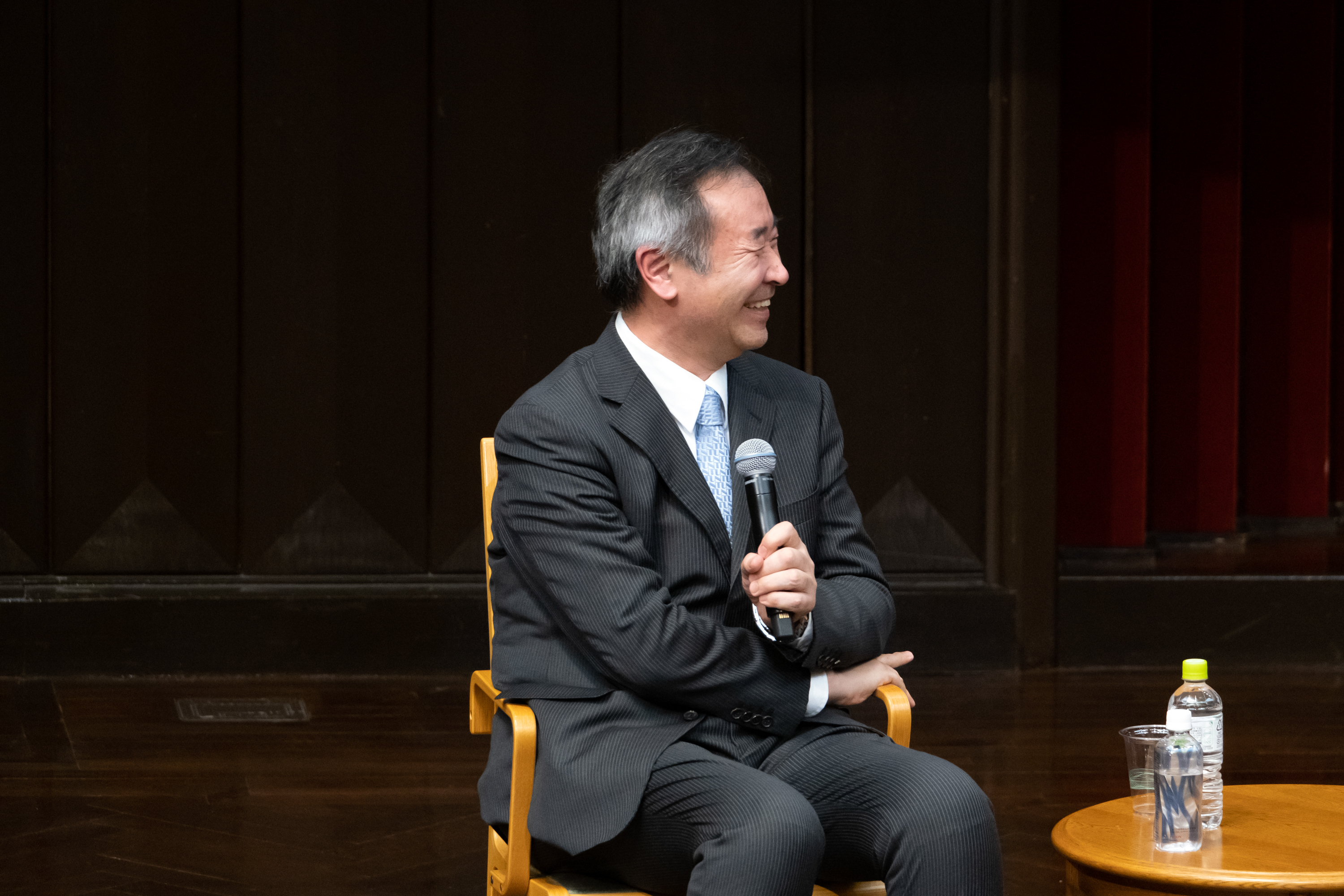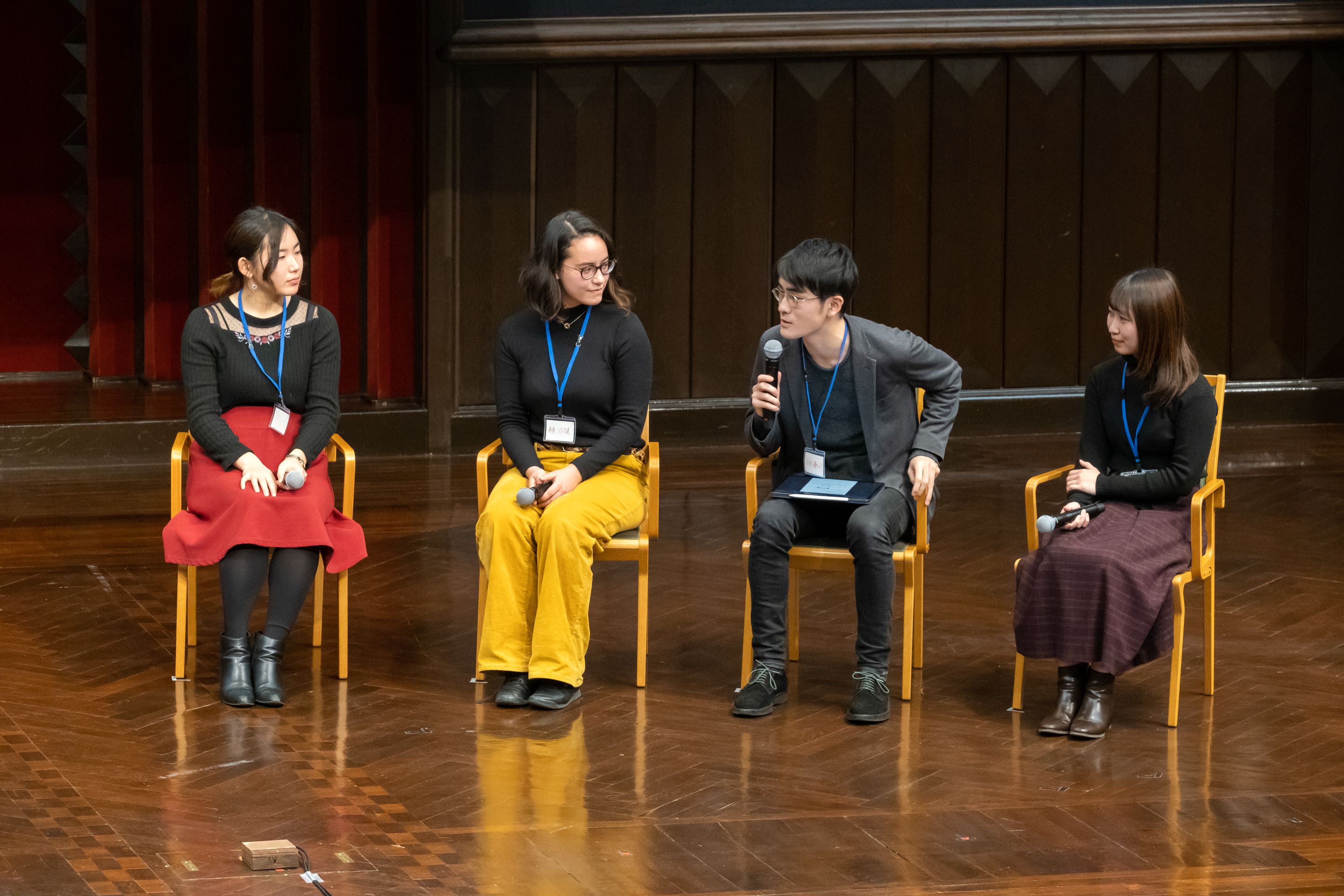Tokyo College Event “The Mysterious Particles: Neutrinos” by Prof. KAJITA Takaaki

Tokyo College held a public lecture on “The Mysterious Particles: Neutrinos”
On January 20, 2020, Professor Takaaki Kajita, recipient of a Nobel Prize in Physics, Distinguished University Professor and Emeritus Professor at the University of Tokyo, and Director of the Institute for Cosmic Ray Research, gave a lecture on “The Mysterious Particles: Neutrinos.” Following opening remarks from Professor Masashi Haneda (Tokyo College Director), Professor Kajita presented a lecture that introduced neutrinos, set out an overview of the Super-Kamiokande experiments in Gifu Prefecture, explained the discovery of neutrino oscillation, as well as the mass of neutrinos, and the universe. How was it possible to discover the existence of these particles called neutrinos, which we cannot see? Professor Kajita’s lecture set out the process leading to this discovery.
First, it was explained that in the 1980s the Kamiokande installation was built underground in the Kamioka area of Hida, a city in Gifu Prefecture, and research began into neutrino elementary particles, the existence of which had been predicted in the 1950s. After that, the Super-Kamiokande facility was built in order to advance neutrino research. Research conducted with equipment at these facilities has shown that neutrinos have a small mass. Looking back over the research process that led to this discovery of neutrino oscillation, Professor Kajita explained why the small mass of neutrinos, which have no electrical charge, is considered to be important.
After the lecture, a Q&A session was held with the students. The first question asked about what it felt like when less than half of the expected data was obtained through the research, and the process from that point to the success of the research. Professor Kajita, who said that he felt that the absence of the expected data was problematic, and that he felt concern and anxiety as a researcher when starting out, stated that as he gained confidence in the nature of the research, he started to feel very excited. He also said that it was his duty as a scientist to find the reason for the divergence of the data from the prevailing theory that prevented him from giving up his research, and inspired him to continue even though he was in a minority in the research area. In terms of leading a research team, he answered that the hundred or so members of the team were all aware of the importance of neutrinos, and united in a single research direction, which created a work environment in which collaboration was easy.
Various questions followed from students and from the floor, covering topics including Professor Kajita’s hobbies, his attitude towards research, and what kinds of people are well or poorly suited to be researchers. Professor Kajita told of how his tough experiences in club activities as a student led to his attitude of going right to the very end without letting up, and that research is an exciting thing for him. Following a question about female researchers balancing research and family, he encouraged the worried questioner by giving real examples of students and explaining that, although Japan is behind in this respect, balancing research and family life is commonplace around the world, and it is not necessary to choose one or the other. When asked the secret of maintaining his motivation, he pointed to the importance of feeling that he is aiming towards something, and keeping a hold of that sense of interest somewhere in his heart. The Q&A session was relaxed, with the occasional laugh, with many questions about his attitudes towards research as someone involved in the area, rather than only questions of physics concerning mass and elementary particles.
| Date(s) | Monday, 20 January 2020, 5:00-6:30 pm (Doors open: 4:00 pm) |
|---|---|
| Venue |
Yasuda Auditorium, The University of Tokyo (Hongo Campus) |
| Registration | Pre-registration required (700 seats - First come, first served) |
| Language | Japanese (No simultaneous translation available) |
| Organized by | Tokyo College, The University of Tokyo |
| Contact | tcevent@graffiti97.co.jp |


